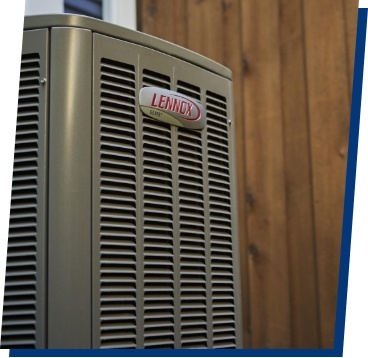Furnaces are one of those appliances that we all take for granted until they stop working. Then, we’re left shivering in the cold wondering how long we can last without heat.
If you want to know how long you can expect your furnace to last, the quick answer is around 15-20 years. However, a number of factors can shorten or lengthen that timeframe. The least-efficient furnaces may only last 10-12 years, while the most-efficient can push 30 years. The following covers a few factors that will affect how long your furnace lasts and how you can extend its lifespan.
Quality of the Unit
A higher-quality unit will last longer than a lower-quality one. If you skimp on your furnace, don’t be surprised if it starts having problems after a few years. Conversely, if you invest in a high-quality furnace, it could easily last 20 years or more.
If you want to know if your furnace is high quality, look for a few key features. First, check if the unit has a stainless-steel heat exchanger. These tend to last much longer than those made of other materials. Additionally, look for a unit with a multi-speed blower motor; this will help your furnace run more efficiently and last longer. Also, be sure to choose a unit with a good warranty. This is usually a good quality indicator, as manufacturers are more likely to offer extended warranties on higher-quality products.
Proper Maintenance
To maximize the lifespan of your furnace, it’s essential to maintain regular maintenance. This means having your furnace serviced at least once a year, ideally before winter. A technician will clean the unit during these servicing appointments and perform any necessary repairs.
It’s also important to keep an eye on your furnace throughout the year and to address any problems as they arise. For example, if you notice your furnace is making strange noises, it’s probably time to call in a professional. If you properly maintain your furnace, it will last for at least 15 years and possibly much longer.
Type of Fuel Used
The type of fuel your furnace uses can also affect its lifespan. For example, furnaces that use oil tend to have shorter lifespans than those that use natural gas. They will go through more wear and tear over the years and are more likely to develop leaks. These can go for 10-15 years before needing to be replaced.
On the other hand, natural gas furnaces tend to last a bit longer — upwards of 20 years in some cases. However, it’s important to note that even the best-quality natural gas furnaces will eventually need to be replaced.
Your Home’s Layout
The layout of your home can also affect how long your furnace lasts. If your home is large or has more than one floor, your furnace will have to work harder to heat the entire space. This extra work can shorten its lifespan.
Additionally, if your furnace is in an area prone to dust or other airborne particles, it will have to work harder to filter them out. This can also lead to a shorter lifespan.
Frequency of Use
How often you use your furnace can also affect its lifespan. If you live in an area with mild winters and only use your furnace a few times a year, it will last longer than if you live in a colder climate and use it daily.
This is because, naturally, the more you use your furnace, the more wear and tear it will experience. Additionally, if you use your furnace frequently, it’s essential to keep up with regular maintenance appointments. This will help to keep your furnace in good shape and prevent any problems that could shorten its lifespan.
Installation
Proper installation is critical to the longevity of your furnace. If your furnace isn’t installed correctly, it will have to work harder to heat your home, and this extra work can lead to a shorter lifespan. Additionally, if your furnace isn’t installed correctly, it’s more likely to develop leaks.
To ensure that your furnace is installed correctly, it’s necessary to hire an HVAC professional. A trained HVAC professional will know how to properly size your furnace for your home and install it correctly.
Capacity
If you have a furnace that’s too small for your home, it will have to work harder to heat the entire space. This extra work can lead to a shorter lifespan. Conversely, if you have a furnace that’s too large for your home, it will cycle on and off more frequently. This can also lead to a shorter lifespan.
How to Ensure a Long Furnace Lifespan
You can do a few things to ensure your furnace lasts as long as possible. Here are some ways you can extend the lifespan of your furnace:
Schedule Regular Maintenance Appointments
This will help to keep your furnace in good shape and prevent any problems that could shorten its lifespan. During the maintenance appointment, the technician will clean the furnace, inspect it for any problems, and make necessary repairs. At a minimum, you need annual maintenance, but biannual tune-ups may be beneficial for some homeowners.
Keep Your Home Clean
If your home is clean, it will put less strain on your furnace. This is because a clean home doesn’t have as much dust and debris floating through the air. Additionally, if your furnace is in an area prone to dust or other airborne particles, it will have to work harder to filter them out. This can also lead to a shorter lifespan.
Change Your Filters Regularly
If your furnace filters are dirty, the furnace will have to work harder to push air through them. This extra work can lead to a shorter lifespan. To ensure that your furnace is running efficiently, it’s essential to change the filters regularly. Depending on your filter type, you may need to change it monthly, every three months, or every six months.
Avoid Making Large Temperature Changes
If you make significant temperature changes on your thermostat, it will strain your furnace. For example, if you turn the temperature up 20 degrees after the furnace has been off for a while, it will have to work harder to heat your home. It’s best to make gradual temperature changes to avoid putting too much strain on your furnace.
Invest in a Programmable Thermostat
A programmable thermostat can help you save energy and money. Additionally, it can help to extend the lifespan of your furnace. This is because you can use the thermostat to heat your home as efficiently as possible. The thermostat will also help you to keep your home at a comfortable temperature without making significant temperature changes, and some models will remind you to change filters and schedule regular maintenance.
As you can see, you can do a few things to ensure that your furnace lasts as long as possible. By following these tips, you can keep your furnace in good shape and extend its lifespan. If you need any help with your furnace, be sure to contact Cool Power LLC. We offer a wide range of furnace services, including installation, repair, and maintenance. Our team of experienced professionals can also provide a full range of cooling services. Contact Cool Power LLC today for more information or to set up an appointment.


